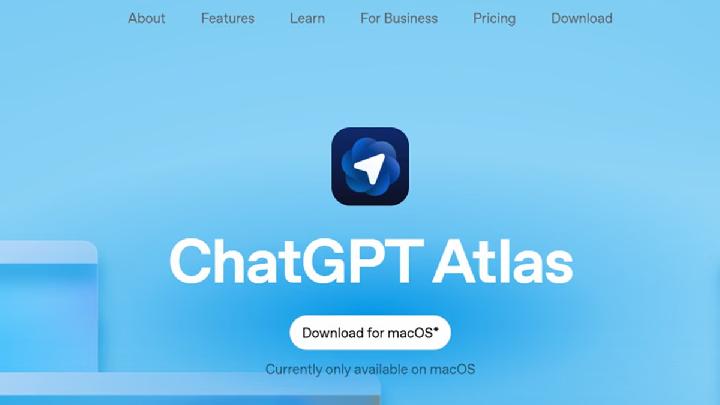OpenAI has launched ChatGPT Atlas, a new browser that brings artificial intelligence directly into web browsing. The release marks a bold move into a space long dominated by Google Chrome. Atlas is currently available for macOS users, with Windows, iOS, and Android versions coming soon.
Features That Make Atlas Stand Out
Atlas integrates ChatGPT into the browsing experience through a simple sidebar. Users can ask questions, summarize articles, compare prices, or get insights without switching tabs. The browser also includes an “Agent Mode” that allows ChatGPT to perform complex online tasks, such as booking flights or managing purchases.
Additionally, the browser includes an optional memory feature. When enabled, Atlas remembers user preferences and browsing habits to provide a more personal experience. This creates a smoother and more efficient browsing journey.
How Atlas Challenges Google Chrome
Google Chrome currently holds more than 70% of the global browser market. With Atlas, OpenAI is looking to shift how people search and browse online. Instead of typing keywords into a search bar, users can simply ask ChatGPT to find or explain what they need.
This approach could reduce users’ reliance on traditional search engines. It may also redirect traffic and ad revenue from Google to OpenAI. Clearly, the company aims to become more than a chatbot provider—it wants to shape the way people interact with the internet.
Privacy and Market Concerns
Despite its innovation, Atlas has raised some privacy concerns. Since it can store browsing data to improve performance, users must trust OpenAI to manage their information responsibly. Industry experts also worry about how this shift could affect content creators and advertisers who depend on website visits and ad clicks.
Still, OpenAI has promised that privacy controls will remain in the user’s hands. The company said users can disable memory or browsing data collection at any time.
What’s Next for Atlas
For now, Atlas is available on macOS, but OpenAI has confirmed plans to release it across more platforms soon. The browser’s success will depend on its speed, security, and ability to deliver consistent results. With competitors like Google already adding AI tools to Chrome, the race to dominate the smart browsing space has officially begun.
Conclusion
OpenAI’s Atlas browser is a major step toward redefining how people browse the web. It merges AI and search in one place, offering users a more interactive experience. However, it faces a huge challenge in winning users from Chrome and Safari. Whether Atlas becomes a mainstream tool or a niche innovation, it signals a major shift in the evolution of web browsing.
Bonus Read: Amazon Cloud Outage Resolved After Worldwide Internet Disruption




One thought on “OpenAI Launches Atlas Browser to Rival Chrome”